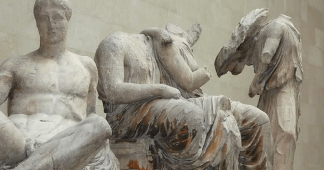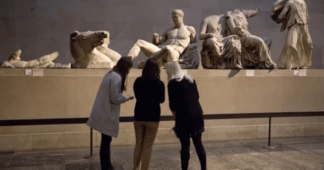UK PM Sunak rules out law change for return of Parthenon marbles
March 13, 2023
British Prime Minister Rishi Sunak ruled out changing a law which prohibits the British Museum handing the Parthenon marbles permanently back to Greece.
Sunak said there are no plans to amend the legislation, which states the museum can only dispose of objects within its collection in limited circumstances. However, the museum could still arrange a loan of the sculptures.
Since independence in 1832, Greece has repeatedly called for the return of the sculptures – known in Britain as the Elgin Marbles – that British diplomat Lord Elgin removed from the Parthenon temple in Athens in the early 19th century, when Greece was under Ottoman rule.
Sunak is unlikely to break with the stances of his two predecessors who were both against any kind of loan of the marbles to Greece.
“The UK has cared for the Elgin Marbles for generations. Our galleries and museums are funded by taxpayers because they are a huge asset to this country,” Sunak told reporters on his plane as he flew to the United States.
“We share their treasures with the world, and the world comes to the UK to see them. The collection of the British Museum is protected by law, and we have no plans to change it.”
The former finance minister George Osborne, the chair of the British Museum, has been working on a new arrangement with Greece through which the sculptures could be seen both in London and in Athens.
The Parthenon Project, which has been backed by British politicians from different political parties to settle the issue, said on Sunday the British Museum’s Parthenon collection could be returned to Greece under a long-term cultural partnership agreement. [Reuters]
We remind our readers that publication of articles on our site does not mean that we agree with what is written. Our policy is to publish anything which we consider of interest, so as to assist our readers in forming their opinions. Sometimes we even publish articles with which we totally disagree, since we believe it is important for our readers to be informed on as wide a spectrum of views as possible.









